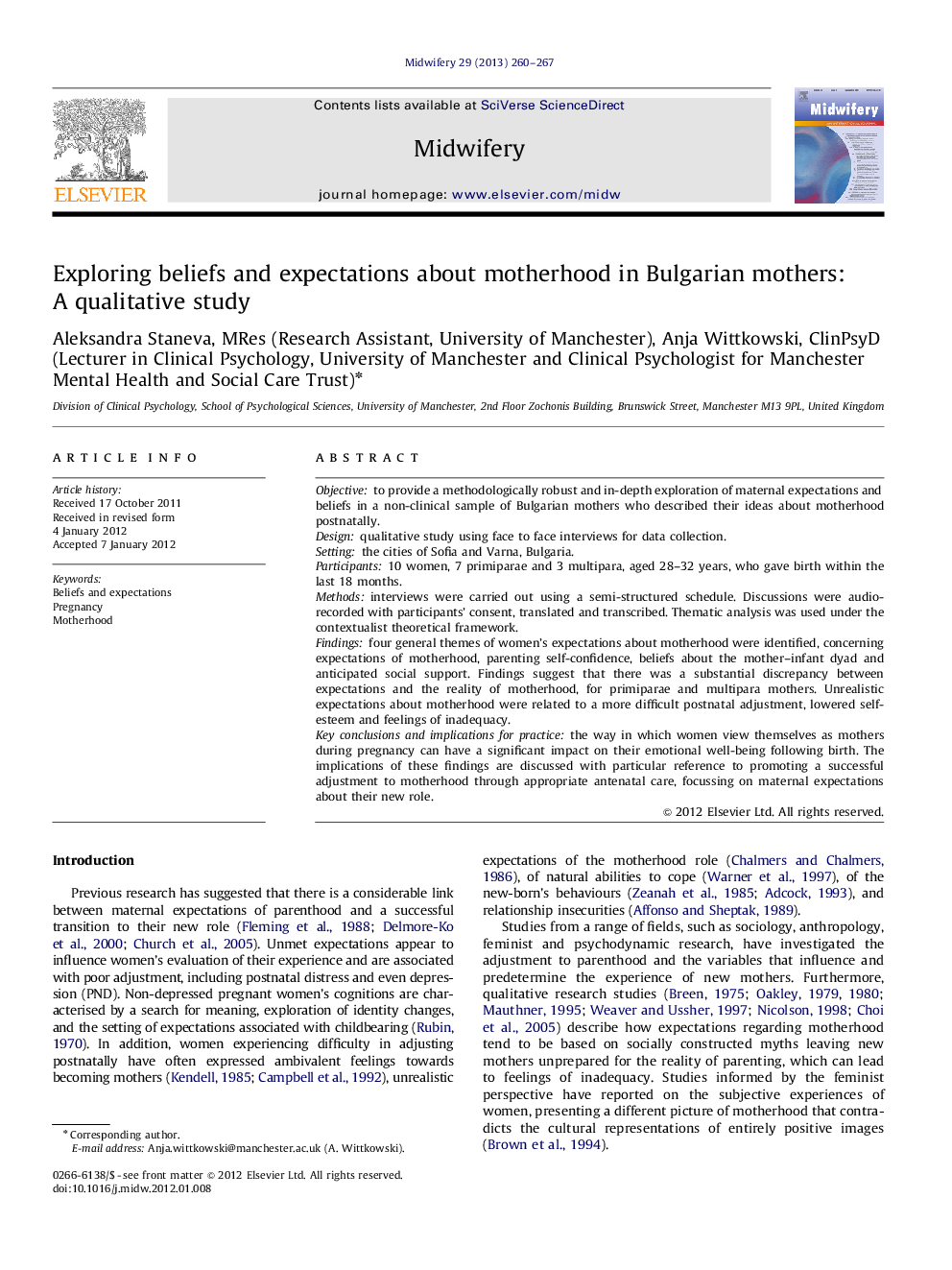| Article ID | Journal | Published Year | Pages | File Type |
|---|---|---|---|---|
| 1084849 | Midwifery | 2013 | 8 Pages |
Objectiveto provide a methodologically robust and in-depth exploration of maternal expectations and beliefs in a non-clinical sample of Bulgarian mothers who described their ideas about motherhood postnatally.Designqualitative study using face to face interviews for data collection.Settingthe cities of Sofia and Varna, Bulgaria.Participants10 women, 7 primiparae and 3 multipara, aged 28–32 years, who gave birth within the last 18 months.Methodsinterviews were carried out using a semi-structured schedule. Discussions were audio-recorded with participants' consent, translated and transcribed. Thematic analysis was used under the contextualist theoretical framework.Findingsfour general themes of women's expectations about motherhood were identified, concerning expectations of motherhood, parenting self-confidence, beliefs about the mother–infant dyad and anticipated social support. Findings suggest that there was a substantial discrepancy between expectations and the reality of motherhood, for primiparae and multipara mothers. Unrealistic expectations about motherhood were related to a more difficult postnatal adjustment, lowered self-esteem and feelings of inadequacy.Key conclusions and implications for practicethe way in which women view themselves as mothers during pregnancy can have a significant impact on their emotional well-being following birth. The implications of these findings are discussed with particular reference to promoting a successful adjustment to motherhood through appropriate antenatal care, focussing on maternal expectations about their new role.
